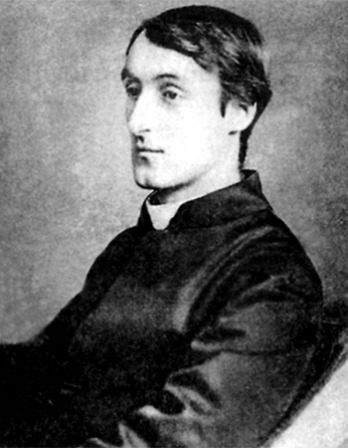After the death of any Egyptian, all the friends and family of the deceased throw dirt upon their heads and run about through the city, mourning and lamenting until the body is interred. They abstain from baths, wine, and all tasty meats in the meantime and refrain from clothing themselves in any luxurious attire. Egyptians have three sorts of funerals: the stately and magnificent, the moderate, and the meanest. In the first they spend a talent of silver; in the second, twenty minas; in the last, next to nothing.
The people who are in charge of wrapping the body up and burying it have been taught the art by their ancestors. Their first task is to put in writing for the bereaved family everything that is to be laid out in the funeral, and they inquire of them how they would like to have the body interred. When everything is agreed upon, they take the body and deliver it to the people whose job it is to take care of it. Then the chief among these people, who is called the scribe, lays the body upon the ground and marks out how much of the left side toward the bowels is to be incised and opened, upon which the paraschistes—as they are called by the Egyptians—with an Ethiopian stone dissects as much of the flesh as is justifiable by law. Having done this, he immediately runs away as fast as he can, and all who are present pursue him, cursing and pelting him with stones, as if he were guilty of some horrid offense, for they look upon him as a hateful person who wounds and does violence to the body.
As for those whom they call the taricheutae, the Egyptians highly honor these people, for they are the priest’s companions and, as sacred persons, are admitted into the temple. As soon as they come to the dissected body, one of the taricheutae thrusts up his hand through the wound, into the breast of the dead, and draws out all the intestines, save for the kidneys and the heart. Another cleanses the bowels and washes them in Phoenician wine mixed with diverse aromatic spices. Having at last washed the body, they spend forty days anointing it all over with the cedar oil and other precious ointments.

“Safdar Jang, Study 1, Delhi, India,” by Michael Kenna, 2005. The tomb of Safdar Jang, vizier to the Mughal emperor Ahmad Shah. © Michael Kenna, courtesy Robert Mann Gallery.
That done, they give it a good rub with myrrh, cinnamon, and similar things, which are not only useful for long preservation but also for giving the body a sweet scent—and so finished, they deliver it to the deceased’s family with every part so whole and complete that nothing on the body seems to be altered—as far as to the very eyelashes and eyebrows, insomuch as the beauty and shape of the face seems just as it was before. By which means, many of the Egyptians, laying up the bodies of their ancestors in stately monuments, can perfectly see the true faces and expressions of those that were buried. When they view the proportions of any dead person’s body, and the characteristics of their face, they take exceedingly great delight, even as much as if they were still living among them.
The friends and nearest relatives of the dead let the judges and the rest of their friends know what time has been fixed for the funeral by declaring that on such and such a day he is to pass the lake. At which time forty judges appear and sit together in a semicircle in a place beyond the lake. There, a ship, which has been provided beforehand by people appointed with the task, is hauled up to the shore, steered by a pilot whom the Egyptians call Charon. And therefore, they say that Orpheus, when he witnessed this ceremony while he was in Egypt, invented the fable of hell, partly imitating the Egyptians and partly adding something of his own. The ship being now in the lake, everyone is allowed by law to accuse the dead before the coffin is put on board, and if any accuser appears and proves his accusation that the deceased lived a bad life, then the judges give sentence, and the body is prohibited from being buried in the usual manner. But if the informer is convicted of a scandalous and malicious accusation, he is very severely punished. If no informer appears, or the information proves false, all the family of the deceased leave off mourning and begin to sing his praises—but they say nothing of his station at birth, as is the custom among the Greeks, because they consider everyone in Egypt to be equally noble. They do recount how the deceased was educated from a child, his breeding till he came to man’s estate, his piety toward the gods and his justice toward men, his chastity and any other virtues in which he excelled. And they pray and call upon the infernal deities to receive the deceased into the society of the just. The common people take it from the others, and approve of all that is said in his praise with a loud shout, and likewise proclaim his virtues with the highest praises and strains of commendation. Then those who have their own tombs inter the corpse in places appointed for that purpose. They that have none of their own build a small apartment in their own houses and stand the coffin against the strongest wall of the building. Those who are denied common burial, either because they are in debt or convicted of some horrid crime, they bury in their own houses. And it often happens, that, later on, some of the deceased’s family grows rich and pays off his debts—or get them absolved—and then bury their ancestor with state and splendor. For among the Egyptians, it is a sacred constitution that they should at their greatest costs honor their parents and ancestors, who are carried over to an eternal home. It is a custom likewise among them to give the bodies of their parents in pawn to their creditors, and whoever does not quickly redeem them falls under the greatest disgrace imaginable, and is denied burial after their death.
From the Historical Library. Diodorus was born around 90 bc in a small town in Sicily (“Siculus” means Sicilian) and may have been in Egypt as early as 60 bc: he witnessed the hanging of a Roman for the accidental killing of a cat, which occurred prior to Julius Caesar and Pompey accepting a bribe from Ptolemy XII for him to become an ally of Rome in 59 bc. Diodorus claimed to have spent thirty years in his research for his universal history, which begins with mythological origins and carries through to Caesar’s conquest of Gaul.
Back to Issue



